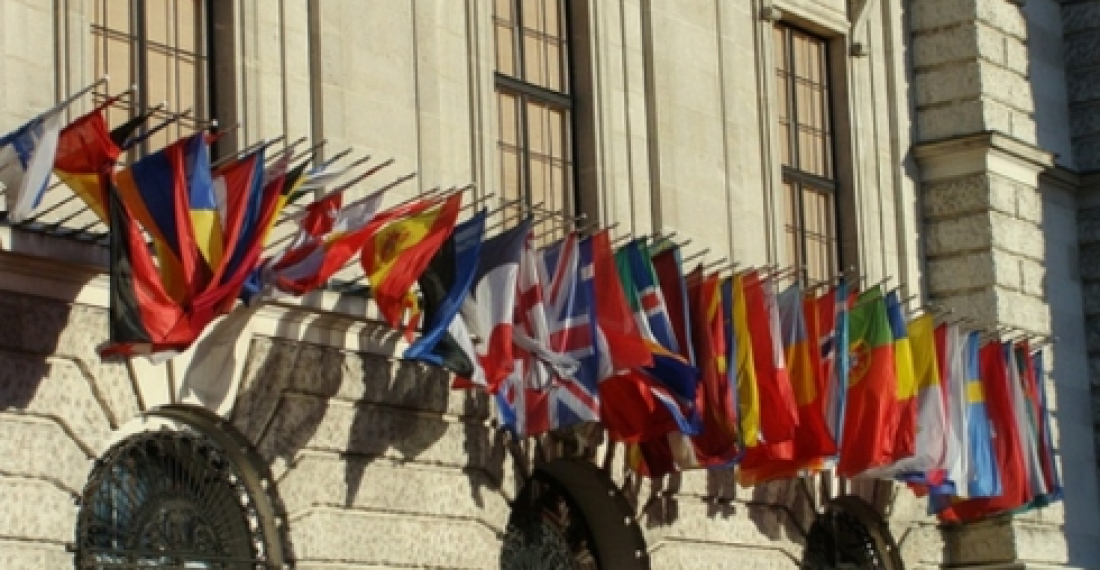World leaders have been quick to condemn this weekend’s fighting between Armenia and Azerbaijan in Nagorno-Karabakh, with Russia, the USA and the EU calling for an immediate ceasefire. Some regional actors, such as Turkey and the Collective Treaty Security Organisation, have apportioned blame.
The fighting, violating a truce which had been observed over the Easter and Novruz holiday period, is the worst to hit the province since a 1994 ceasefire.
The Armenian president said 18 Armenian troops have been killed and 35 wounded. Azerbaijan’s defence ministry said 12 of its troops are dead. Both sides are claiming civilian casualties, and to have killed many more of the enemy.
Russia’s president Vladimir Putin called for both sides to stop fighting on Saturday, while the country’s foreign minister, Sergei Lavrov, and defence minister, Sergey Shoygu, spoke with their Armenian and Azerbaijani counterparts by phone. Russia has close relations with both Armenia and Azerbaijan, and sells weapons to both.
There are reports that Russia brokered a cessation of hostilities around 11.00 GMT on Saturday morning, but that this agreement unravelled soon after.
The co-chairs of the OCSE Minsk Group, which has been attempting to resolve the conflict since 1994, will meet in Vienna tomorrow ahead of a full meeting of the Minsk Group on Tuesday. This extraordinary step was confirmed yesterday by Ambassador James Warlick, the American co-chair.
In recent years, both sides have built up large military positions on either side of the disputed border, and there have been many small skirmishes resulting in casualties. However this round of fighting appears to be the worst in two decades.
Europe’s foreign policy chief Federica Mogherini also called for both parties to stop fighting and observe the 1994 ceasefire. “The European Union fully supports the efforts of the OSCE Minsk Group and the three Co-Chairs,” she said.
Her comments were echoed by US Secretary of State John Kerry. “The unstable situation on the ground demonstrates why the sides must enter into an immediate negotiation under the auspices of the OSCE Minsk Group Co-Chairs on a comprehensive settlement of the conflict,” he said.
The Russian-led Collective Treaty Security Organisation (CSTO), which Armenia is a member of but Azerbaijan left in 1999, explicitly blamed Azerbaijan for the fighting, while calling for peace.
“Azerbaijani party's actions in this case lead to an aggravation of the situation and the conflict,” CSTO spokesman Vladimir Zainetdinov said
in an interview with Interfax, a Russian newspaper.
However he also said that matters should be resolved through negotiations, and that "armed military solution to Nagorno Karabakh conflict does not exist”.
Meanwhile Turkey, which has strong cultural and linguistic ties to Azerbaijan, and no diplomatic relations with Armenia, says Armenia is responsible for the outbreak of fighting.
"We pray our Azerbaijani brothers will prevail in these clashes with the least casualties," said Turkish President Recep Erdogan said in Washington DC on Sunday. “We will support Azerbaijan to the end," he said.
Erdogan also blamed the Minsk Group co-Chairs, saying that their lack of activity resulted in the fresh fighting.
"If the Minsk Group had taken fair and decisive steps over this, such incidents would not have happened. However, the weaknesses of the Minsk Group unfortunately led the situation to this point,” he said.
Azerbaijan’s defence minister has also been speaking to his Turkish counterpart and the head of the Turkish armed forces, while President Ilham Aliyev of Azerbaijan spoke with his Turkish counterpart Ahmed Davutoglu.
Relations between Russia and Turkey are tense after a Russian plane was shot down on the Turkey-Syria border in November.
Sergei Zheleznyak, vice speaker of the Russian state Duma, has blamed an unspecified "third force" for the fighting.
"That’s why the Russian president and our government agencies urge Armenia and Azerbaijan to cease fire and not to allow to draw them into someone else’s insidious game," he said.
SOURCES: commonspace.eu and agencies
PHOTO: OSCE headquarters in Vienna, Austria






